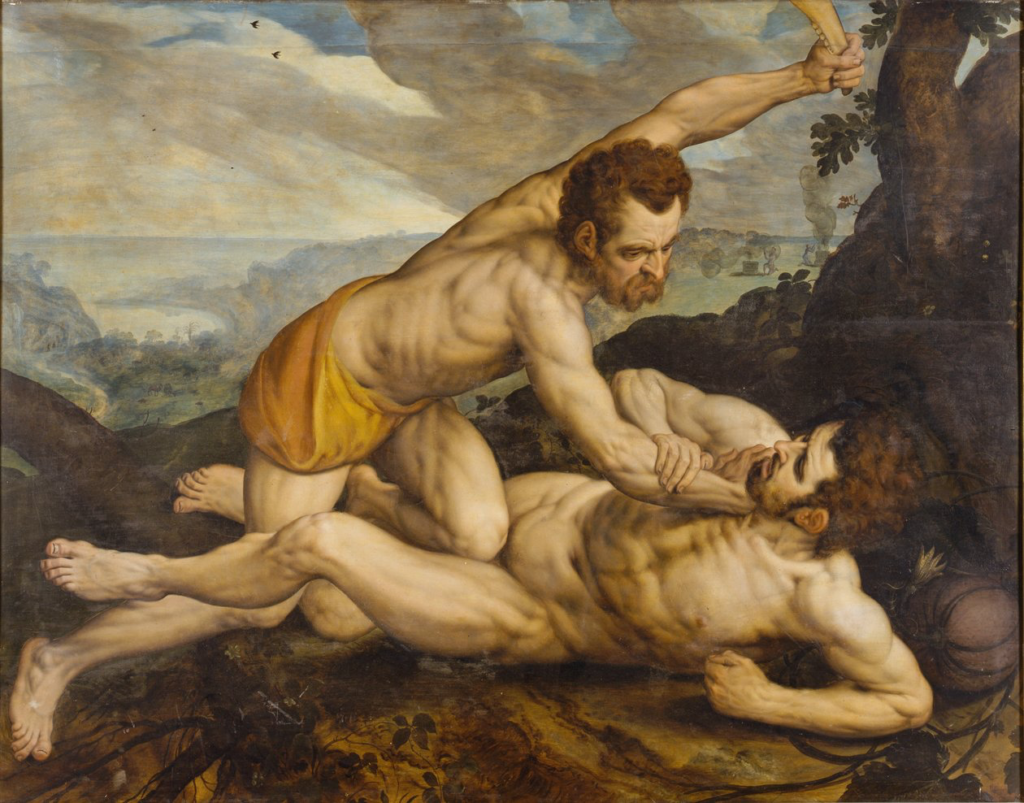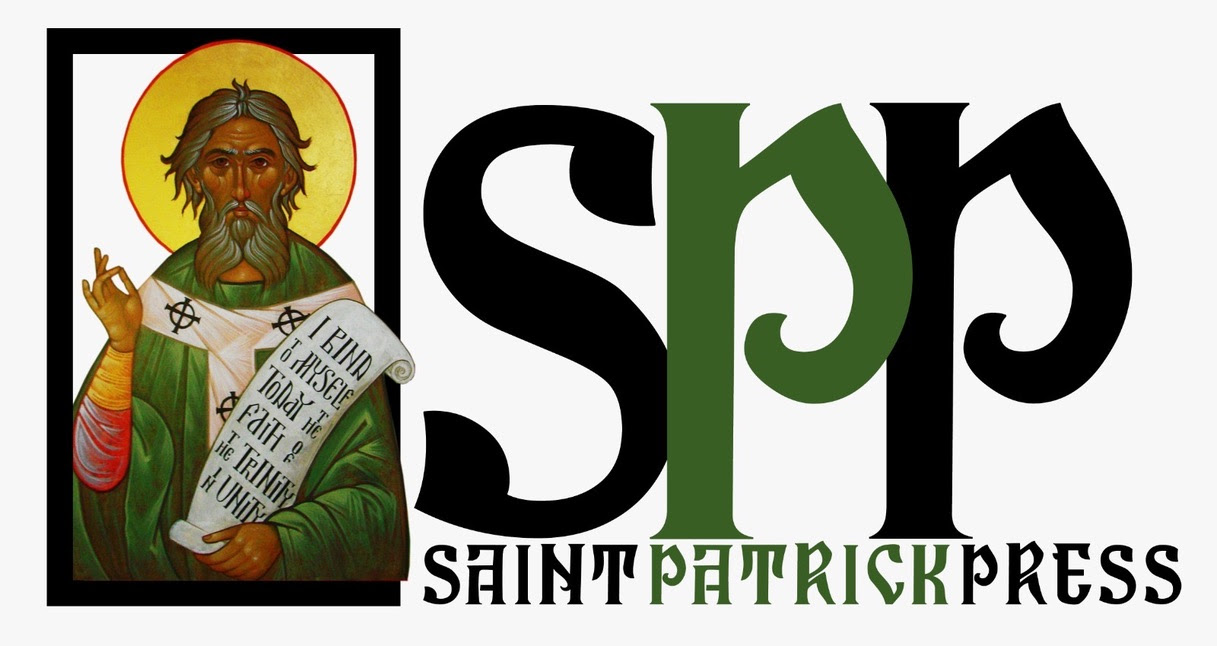Jordan Peterson shows how the story of Cain and Abel has pertinence for us today in how we approach our work, our art, and our relationships with God, neighbour, and creation.

Killing Abel …
Continuing on with Jordan Peterson’s We Who Wrestle with God, I found his chapter on Cain and Abel important from the perspective of art and writing, and is deeply connected to pride that he highlights in the previous chapter which I covered in the last post.
The struggle of Cain vis a vis Abel and God is smilier to that between Adam, Eve, and God: a poor offering leading to a fall from grace leading to a blame game rather than true repentance. The breakdown is in that of identity of man as homo faber (creator0 and homo adorns (priest). Cain’s offering was not a real offering–was not pleasing to God. He did not offer his best but something lesser. Instead of blaming himself and seeking to make things right, he blamed Abel and cursed God. I resonate with how Peter breaks this down in the context of labour …
Some sacrifices work (accepted), while others clearly do not and are rejected … “What or how should you offer, or sacrifice, to God; to solve the problem of what is acceptable to God–the problem of what is likely to be successful, in the highest of possible senses?” The answer by the ancient authors: The best you have–or heaven help you: or, even more starkly, “If you bring forth what is within you, what you bring forth will save you.”
This last part to me is not a ‘talent’ per se, but is Christ Himself–the One who dwells within me, His Kingdom, His Cross … J.P. continues,
It is in establishing this relationship between talent, opportunity, and responsibility that God ensures the maintenance of the eternal balance of justice … Cain’s great and archetypal sin is … best understood as his holding back, his hiding of his God-given light “under a bushel,” his putting it in a secret place” (Lk 11:33), his failing to offer his best (128-29).
Become Fire, My Friend
It’s like the story of Abba Joseph and Abba Lot. When Abba Lot told Abba Joseph all that he did (reading office, fasting a little, etc) and added what more he could do, Abba Joseph help up his hands which revealed ten burning fingers aflame. “Or,” he said, “You can become all flame.”
Peterson …
Cain … deprives himself of what could be true romantic adventure of his life; the adventure that might justify that very life and provide it with significance that is the most effective antidote to nihilistic bitterness and resentful rebellion. It is by no means only the lack of the external social trappings of success … [but also] the absence of meaning in his life attendant upon his arrogant, deceitful, and slothful withholding (129).
And this goes for all of us: to become the fisherman who became ‘fishers of men’, the woman who gave her last coin, the man who sold everything to purchase the land to possess the treasure; the Abraham and the many nations; Moses and the promised land; the harlot hiding the Israeli spies; St Mary as the maidservant of the Lord … On and on … Saint Patrick returning to Ireland, the place of his exile. …
From Killing Abel to Becoming Abel
Peterson …
What then is the moral of this story? … The insistence that life more abundant requires a complete and total commitment, with every glance, with every word, with every action. We are called upon, in the face of life’s overwhelming difficulties and opportunities, to offer no less than absolutely everything we have–everything… that we have been given and should be grateful for (rather than, say, proud of) (129).
Homo adorns …
We are created as priests of creation–to offer the world, ourselves, our gifts back to God in thanksgiving. We short circuit that relationship when we seek our own will and our own glory.
Peterson …
It does not take much introspection … to understand Cain. There is not a man or woman alive who has not been racked at some point with envy, resentment at failure, wishing harm to the comparatively successful. … It is very difficult not to curse God, so to speak, when everything is falling apart around you, especially when the justice of that disintegration appears questionable, as it often does. Cain fails, then he renders himself self righteously cynical and bitter enough to take the issue up with God Himself (133).
Killing Abel By Killing A Vase …
The whole culture is screwed up–turned upside down from the natural order of things, how we’ve been created. The whole climbing the ladder thing: doing all we can to climb the ladder while suppressing the fear of being pulled down. Bear your teeth, clench your fist, and go after what everyone else is going after–only better, faster, more successfully. Leads to sickness and toxicity. Our thoughts determine our lives …
Reminds me of a story St Porphyrios tells of a woman who was at a friend’s house. The friend shows the woman a new vase she received from her husband. The woman was flooded with envy, eventually hating the vase and hating her friend. She returned home, sat down and was fully cast into envy. She wished the vase would smash into a thousand pieces! Suddenly the phone rang. It was her friend, the woman with the vase.
“Something terrible has just happened!” the friend cried through the receiver.
“What … what happened?” the woman asked, startled by the ringing of the phone and the panic in her friends voice.
“The vase–my God!”
“The vase? The one you should me?”
“Yes–my God I’m shaking!”
“What happened?” Her friend on the other end of the phone was in panic and terror.
“It was sitting on my table, where I showed you … and … and … my God–“
“What! … What!”
“It suddenly burst into a thousand pieces! I’ve never seen anything like it in my life, my God I’m shaking!”
Our Thoughts Determine Our Lives–and Those of Others
Our thoughts determine our lives as Elder Thaddeus says in his book of the same title. But, as the story goes, and as the story of Cain also shows, our thoughts can determine the lives of others too. We are connected to the world, to creation in ways we don’t know. Our toxicity towards others can impact their lives too. We may not murder them physically, but we murder them in our minds as our Lord tells us in the act of even thinking it.
And hating or envying those around us–their successes, their joys, how their gifts are so honoured by others over against our own–destroys our souls and impacts their lives too, somehow. And one of the ways it destroys us is it takes our efforts away from what we should be doing: creating our very best, offering our very best in a faith that blinds us to all else in our God, in His Love, and in the richness of His blessings.
May we take hold of our calling, own it, give it our all forsaking all else, and offer our lives, our work, our selves to God, seeking His favour and His favour alone.
